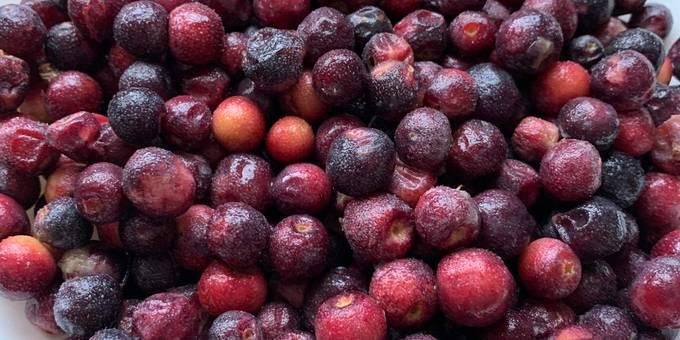Top 10 Health Benefits of Grewia Asiatica (Phalsa)
Phalsa, also known as Grewia Asiatica, is a delicious fruit native to tropical and subtropical regions. Packed with vitamins, minerals, and antioxidants, phalsa offers a range of potential health benefits. Let's explore the top 10 reasons to include this tart and refreshing fruit in your diet:
-
Rich in Antioxidants:
Phalsa boasts a wealth of antioxidants that combat free radical damage, potentially reducing the risk of chronic diseases.
-
Anti-inflammatory Powerhouse:
Phalsa's anti-inflammatory properties may help alleviate inflammation and lower the risk of chronic conditions.
-
Blood Sugar Management:
Studies suggest phalsa may possess properties that regulate blood sugar levels, potentially aiding in diabetes management.
-
Potential Cancer Fighter:
Early research indicates phalsa may have properties that hinder abnormal cell growth.
-
Heart Health Support:
Phalsa's properties may contribute to overall heart health.
-
Pain Relief:
Phalsa may offer pain-relieving properties.
-
Digestive Aid:
Traditionally, phalsa has been used to manage indigestion and other digestive issues.
-
Boosts Immunity:
The presence of Vitamin C in phalsa may contribute to a stronger immune system.
-
Hydration and Cooling:
Phalsa's high water content makes it a refreshing and hydrating fruit, perfect for hot climates.
-
Potential Benefits for Skin Health:
Phalsa's properties may contribute to improved skin health.
Disadvantages of Grewia Asiatica (Phalsa)
While phalsa is generally safe for consumption, there are a few potential drawbacks to consider:
1. Limited Availability
-
Phalsa is a seasonal fruit native to specific regions like Southeast Asia.
-
Its limited availability can make it difficult to find outside its growing season or location.
2. Potential for Gastrointestinal Issues
-
Consuming excessive amounts of phalsa may cause digestive discomfort in some individuals, especially those with sensitive stomachs.
-
The high fiber content and tannins in phalsa can contribute to bloating or gas.
3. Lack of Extensive Research
-
More scientific research is needed to fully understand the potential benefits and side effects of phalsa consumption.
-
While some studies suggest potential health benefits, more data is required for conclusive evidence.
4. Potential for Pesticide Residue
-
As with any fruit, it's important to choose organic phalsa whenever possible to minimize exposure to pesticide residues.
5. Potential Blood Sugar Interaction
-
Phalsa may have blood sugar lowering properties.
-
People with diabetes or taking medications for blood sugar control should consult a healthcare professional before consuming phalsa.
Overall, phalsa is a nutritious fruit with a good safety profile. However, it's advisable to consume it in moderation and be mindful of potential drawbacks, especially if you have any underlying health conditions.
Disadvantages of Excessive Grewia Asiatica (Phalsa) Consumption
While phalsa is generally safe for most people in moderation, consuming excessive amounts can lead to some drawbacks:
1. Digestive Issues
-
Phalsa's high fiber content and tannins can cause bloating, gas, or diarrhea, especially in individuals with sensitive stomachs.
2. Blood Sugar Interaction
-
Phalsa may possess blood sugar lowering properties. Consuming excessive amounts could lead to excessively low blood sugar levels, particularly for people with diabetes or those taking medications for blood sugar control.
3. Other Potential Issues
-
Excessive consumption of any fruit, including phalsa, may lead to weight gain due to the additional sugar intake.



